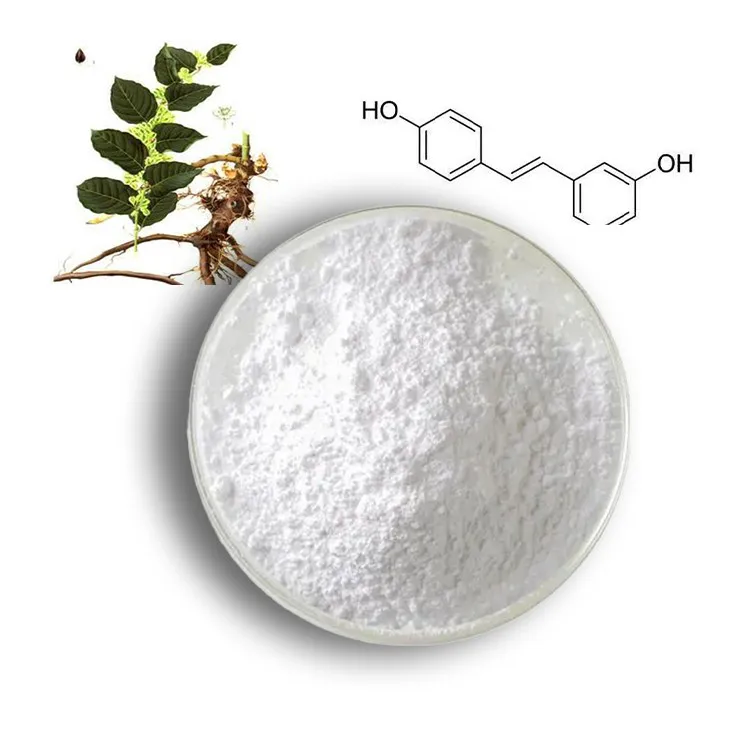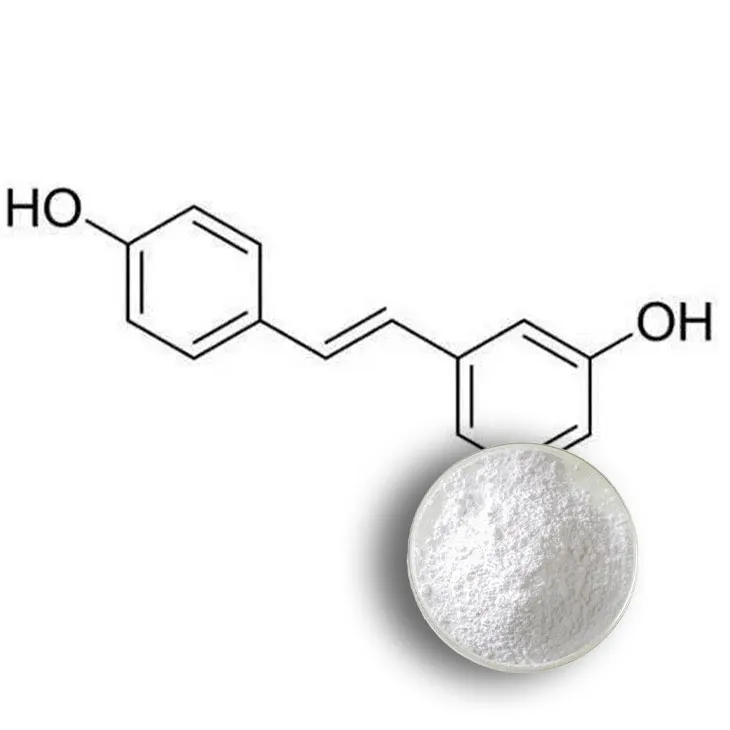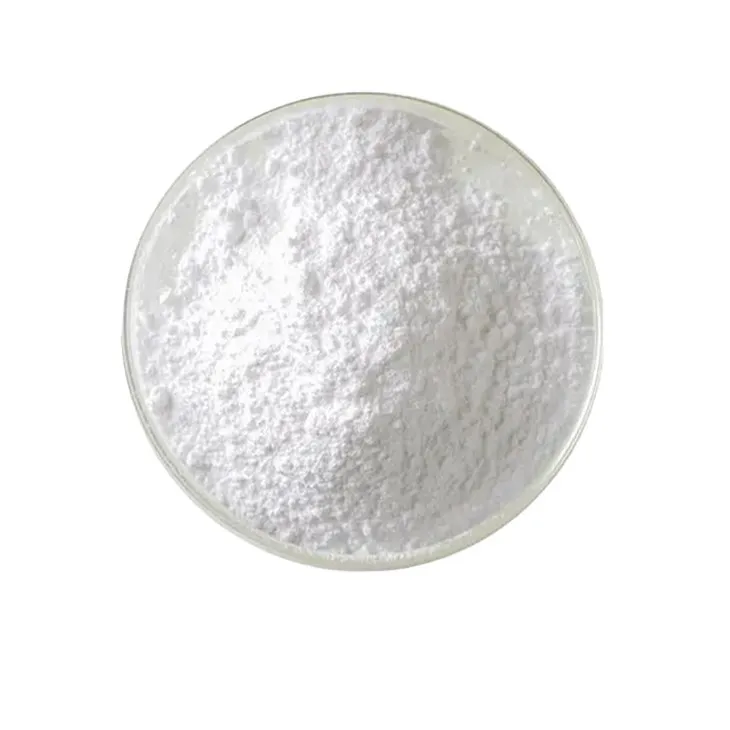- 0086-571-85302990
- sales@greenskybio.com
Does resveratrol extract have benefits for diabetes? Are these all safe and applicable for diabetic patients?
2024-11-12

1. Introduction
Diabetes mellitus is a chronic metabolic disorder that has reached epidemic proportions globally. It is characterized by high blood glucose levels due to either insufficient insulin production or ineffective insulin action. Resveratrol, a natural polyphenolic compound found in various plants such as grapes, berries, and peanuts, has been the subject of numerous studies regarding its potential benefits in diabetes management. However, the question of its safety and applicability for diabetic patients remains a crucial area of investigation.

2. Resveratrol and Glucose Metabolism
2.1. Insulin Sensitivity
One of the key aspects of diabetes management is improving insulin sensitivity. Resveratrol has been shown to enhance insulin sensitivity in several ways. In vitro and in vivo studies have demonstrated that resveratrol can activate AMP - activated protein kinase (AMPK). AMPK is a crucial enzyme in cellular energy homeostasis. When activated, it promotes glucose uptake in cells, especially in skeletal muscle cells, which are major sites for glucose disposal. This increased glucose uptake mimics the action of insulin, thereby improving the body's ability to handle glucose in the absence or presence of reduced insulin function.
For example, in animal models of diabetes, resveratrol supplementation led to a significant improvement in insulin - mediated glucose uptake. This was accompanied by changes in the expression of genes related to glucose metabolism, such as GLUT4 (glucose transporter type 4), which is responsible for transporting glucose into cells. The up - regulation of GLUT4 by resveratrol further supports its role in enhancing insulin sensitivity.
2.2. Gluconeogenesis and Glycolysis
Resveratrol also affects the processes of gluconeogenesis and glycolysis. Gluconeogenesis is the production of glucose from non - carbohydrate sources, and in diabetes, this process can be dysregulated. Resveratrol has been found to inhibit hepatic gluconeogenesis. It does this by suppressing the activity of key enzymes involved in gluconeogenesis, such as phosphoenolpyruvate carboxykinase (PEPCK) and glucose - 6 - phosphatase (G6Pase). By reducing the production of glucose in the liver, resveratrol can help in controlling blood glucose levels.
On the other hand, resveratrol can also modulate glycolysis, the breakdown of glucose to produce energy. It can enhance the activity of glycolytic enzymes in some tissues, promoting the efficient utilization of glucose for energy production. This dual effect on gluconeogenesis and glycolysis is beneficial in maintaining a proper balance of glucose in the body, which is often disrupted in diabetic patients.

3. Resveratrol and Diabetic Complications
3.1. Cardiovascular Complications
Diabetic patients are at a high risk of developing cardiovascular complications. Resveratrol has shown potential in reducing this risk. It has antioxidant and anti - inflammatory properties. Oxidative stress and inflammation play significant roles in the development of atherosclerosis, a common cardiovascular complication in diabetes. Resveratrol can scavenge free radicals, reducing oxidative damage to cells in the blood vessels.
Moreover, resveratrol can inhibit the activation of inflammatory pathways, such as the nuclear factor - kappa B (NF - κB) pathway. By suppressing inflammation, it can prevent the adhesion of monocytes to the endothelium and the subsequent formation of atherosclerotic plaques. In addition, resveratrol may also have a beneficial effect on blood lipid profiles. It has been reported to reduce triglyceride levels and increase high - density lipoprotein (HDL) cholesterol, which is considered "good" cholesterol. These effects on lipids, along with its anti - inflammatory and antioxidant properties, contribute to a reduced risk of cardiovascular complications in diabetic patients.
3.2. Nephropathy
Diabetic nephropathy is a serious complication that can lead to kidney failure. Resveratrol may have a protective role in diabetic nephropathy. In diabetic kidneys, there is an increase in oxidative stress, inflammation, and fibrosis. Resveratrol's antioxidant and anti - inflammatory properties can help combat these pathological processes.
Studies have shown that resveratrol can reduce the expression of pro - inflammatory cytokines in the kidneys of diabetic animals. It can also inhibit the activation of fibroblasts, which are responsible for the production of extracellular matrix proteins that lead to fibrosis. By protecting the kidneys from oxidative stress, inflammation, and fibrosis, resveratrol may slow down the progression of diabetic nephropathy.
3.3. Neuropathy
Neuropathy is another common complication in diabetes, causing pain, numbness, and weakness in the extremities. Resveratrol has been investigated for its potential to alleviate diabetic neuropathy. It may act through its antioxidant and anti - inflammatory mechanisms.
In diabetic nerve tissue, there is an increase in oxidative damage and inflammation. Resveratrol can penetrate the nerve tissue and reduce oxidative stress by increasing the activity of antioxidant enzymes. It can also inhibit the activation of inflammatory cells in the nerve, thereby reducing nerve damage and potentially relieving the symptoms of neuropathy.

4. Safety Considerations
4.1. Dosage
The safety of Resveratrol extract for diabetic patients is highly dependent on the dosage. While some studies have shown beneficial effects at certain dosages, higher dosages may pose risks. In general, the optimal dosage for humans has not been clearly defined yet. In animal studies, relatively high dosages have been used to observe significant effects on diabetes - related parameters. However, when extrapolating these results to humans, caution must be exercised.
For example, high - dose resveratrol supplementation may cause gastrointestinal side effects such as nausea, vomiting, and diarrhea. Additionally, there may be potential interactions with medications that diabetic patients are taking. Some drugs may affect the metabolism of resveratrol, or resveratrol may interfere with the action of certain medications.
4.2. Form of Resveratrol
The form of resveratrol also plays a role in its safety and efficacy. Resveratrol can be obtained in different forms, such as pure Resveratrol extract, resveratrol - rich supplements, or natural sources. Pure Resveratrol extract may be more concentrated and potent, but it may also carry a higher risk of adverse effects if not properly formulated or dosed.
Resveratrol - rich supplements may vary in quality and purity. Some supplements may contain other ingredients that could interact with resveratrol or cause unwanted effects. On the other hand, obtaining resveratrol from natural sources like grapes and berries may be a safer option, but the amount of resveratrol obtained from these sources may be relatively low and may not be sufficient to achieve the desired therapeutic effects.
4.3. Individual Variability
Each diabetic patient is unique, and individual variability can significantly affect the safety and effectiveness of resveratrol. Factors such as age, gender, overall health status, and the presence of other comorbidities can influence how a patient responds to resveratrol.
For example, elderly diabetic patients may have a different metabolism compared to younger patients, and they may be more sensitive to the potential side effects of resveratrol. Similarly, diabetic patients with liver or kidney problems may have impaired clearance of resveratrol, leading to a higher risk of accumulation and adverse effects.

5. Conclusion
Resveratrol extract shows promising potential in diabetes management, with benefits in glucose metabolism and in reducing diabetic complications. However, its safety and applicability for diabetic patients are complex issues. Dosage, form of resveratrol, and individual variability all need to be carefully considered. More research is needed to determine the optimal dosage and form of resveratrol for different types of diabetic patients. Until then, diabetic patients should consult their healthcare providers before starting any resveratrol supplementation to ensure its safety and effectiveness in their individual cases.
FAQ:
1. What is resveratrol extract?
Resveratrol extract is a compound that is often found in certain plants, such as grapes, berries, and peanuts. It has antioxidant properties and has been the subject of numerous studies regarding its potential health benefits.
2. How does resveratrol extract affect glucose metabolism in diabetic patients?
Resveratrol may improve glucose metabolism in diabetic patients by several mechanisms. It might enhance insulin sensitivity, which means the body's cells can better respond to insulin. This can help in regulating blood sugar levels. Additionally, it may influence certain enzymes and pathways involved in glucose uptake and utilization within the cells.
3. Can resveratrol extract reduce diabetic complications?
There is evidence to suggest that resveratrol may help reduce diabetic complications. For example, it has antioxidant and anti - inflammatory properties. Oxidative stress and inflammation play significant roles in the development of complications like neuropathy, retinopathy, and nephropathy in diabetes. By reducing these factors, resveratrol may potentially slow down or prevent the progression of such complications.
4. Are there any side effects of resveratrol extract for diabetic patients?
While resveratrol is generally considered safe for most people when taken in appropriate amounts, some potential side effects may occur. In diabetic patients, it could interact with medications they are taking. High doses of resveratrol may also cause digestive problems such as diarrhea, nausea, or abdominal pain. Moreover, individual responses can vary, and some patients may be more sensitive to its effects.
5. What is the appropriate dosage of resveratrol extract for diabetic patients?
The appropriate dosage of resveratrol for diabetic patients has not been clearly defined yet. Different studies have used various dosages, and it depends on factors such as the patient's overall health, the severity of diabetes, and potential interactions with other medications. It is crucial for diabetic patients to consult their healthcare providers before starting any resveratrol supplementation to determine the safest and most effective dosage.
Related literature
- Resveratrol and Diabetes: From Molecular Mechanisms to Therapeutic Applications"
- "The Role of Resveratrol in Glucose Homeostasis and Diabetes Mellitus"
- "Resveratrol: A Potential Nutraceutical for Diabetic Complications"
- ▶ Hesperidin
- ▶ citrus bioflavonoids
- ▶ plant extract
- ▶ lycopene
- ▶ Diosmin
- ▶ Grape seed extract
- ▶ Sea buckthorn Juice Powder
- ▶ Beetroot powder
- ▶ Hops Extract
- ▶ Artichoke Extract
- ▶ Reishi mushroom extract
- ▶ Astaxanthin
- ▶ Green Tea Extract
- ▶ Curcumin Extract
- ▶ Horse Chestnut Extract
- ▶ Other Problems
- ▶ Boswellia Serrata Extract
- ▶ Resveratrol Extract
- ▶ Marigold Extract
- ▶ Grape Leaf Extract
- ▶ blog3
- ▶ blog4
- ▶ blog5
-
Organic Tongkat Ali extract powder factory.
2024-11-12
-
How to make powder with ashwagandha extract.
2024-11-12
-
Rosehip extract manufacturers from China.
2024-11-12
-
The best cat's claw extract in nature.
2024-11-12
-
Chinese Dandelion Leaf Extract Suppliers.
2024-11-12
-
Mulberry Extract
2024-11-12
-
Elderberry Extract
2024-11-12
-
Polygonum Cuspidatum Extract
2024-11-12
-
Pine bark Extract Powder
2024-11-12
-
Beetroot juice Powder
2024-11-12
-
Tongkat Ali Extract
2024-11-12
-
Feverfew Extract
2024-11-12
-
Chasteberry Extract
2024-11-12
-
Mangosteen extract powder
2024-11-12
-
Shikonin
2024-11-12





















